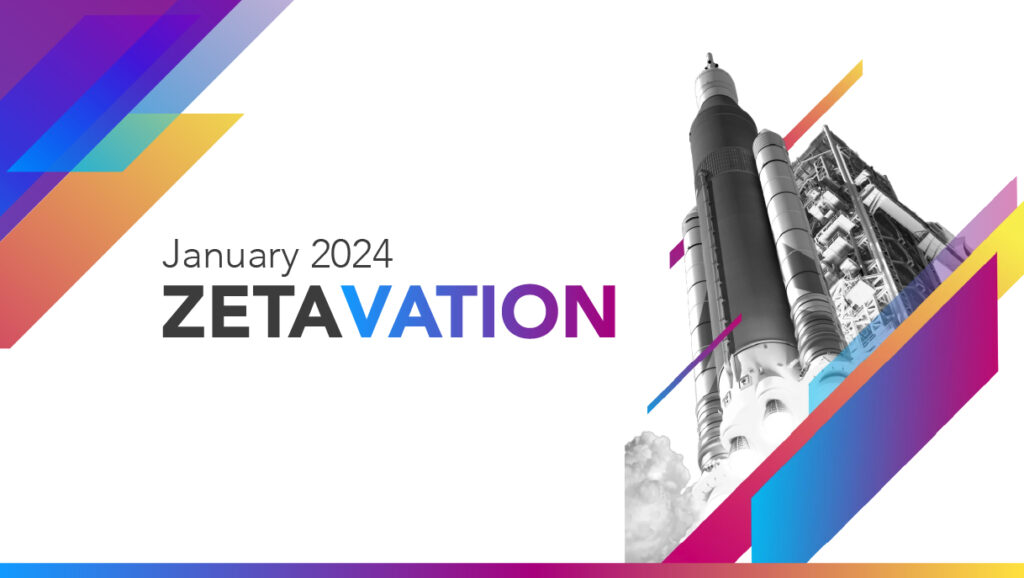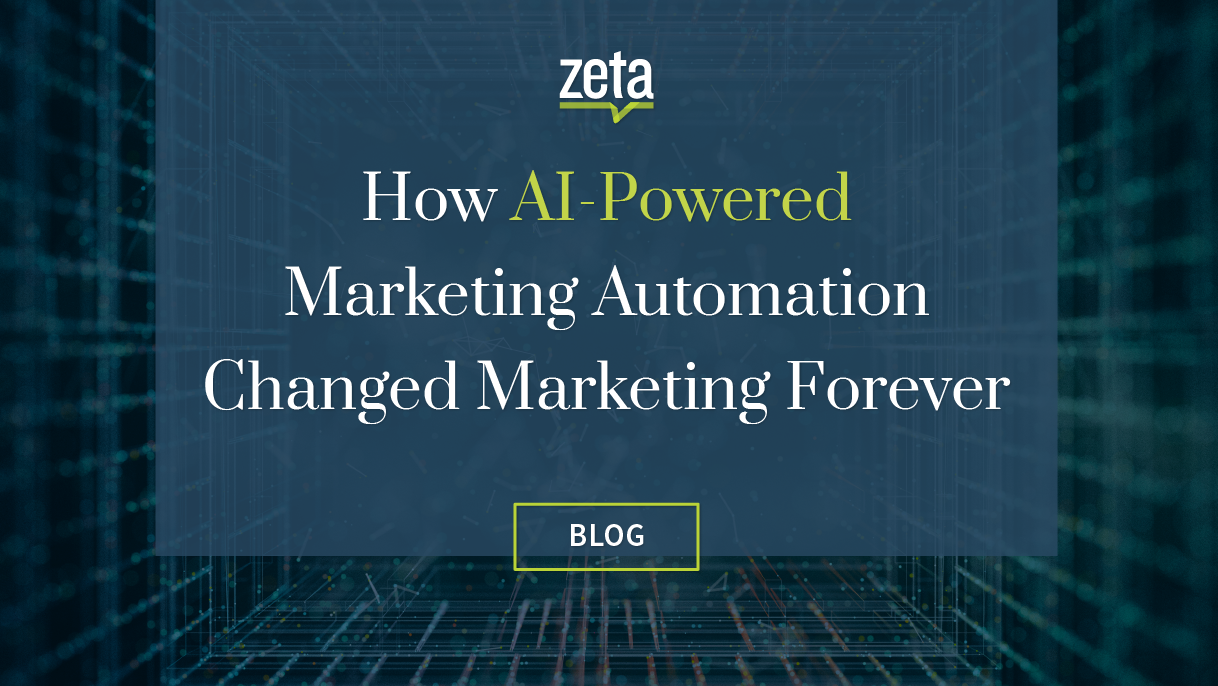
Articles | August 18, 2020 | 4 min read
How AI-Powered Marketing Automation Changed Things Forever
Artificial intelligence not only gives marketers the ability to understand the interests and behaviors of individual consumers—it also makes it possible to communicate with consumers in a personalized, 1:1 way at scale. In other words, AI-powered marketing automation allows marketers (and the brands they represent) to send relevant messaging across a multitude of channels to the right recipient at the right time.
Traditional marketing automation services relied on pre-segmented email lists (segmented using basic demographics such as age, gender, location, etc.) and a series of triggers manually created by a marketer and fed into a given platform.
Conversely, the modern, AI-based marketing automation system…
Using AI, newer marketing automation platforms can track every action a consumer takes over multiple channels. Using this information, AI-powered marketing automation platforms create knowledge graphs for each user to document and learn their preferences. This depth of individual insight makes it easier for brand marketers to create micro-segmented groups of users that can be marketed to using more nuanced campaigns than ever before.
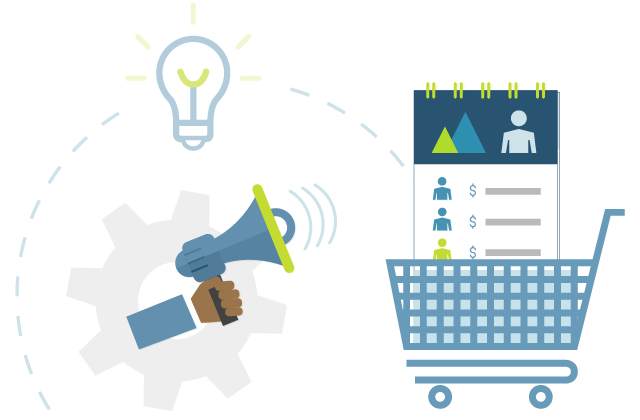
For instance, Zeta’s AI technology pays close attention to individual consumer signals—behavioral, transactional, geographic, and more. Our AI can determine what items an individual shopper is putting in their cart just as easily as it can determine whether or not a consumer expresses interest in a specific landing page.
For example, Nykaa (a beauty and cosmetics eCommerce), tracks consumer micro-engagement signals across several different channels. They then use this data to create richer audience segments (e.g. consumers who’ve purchased more than $100 worth of products but never more than $200, etc. etc.) Nykaa will then target these micro-segments with highly custom, highly personal email campaigns that accelerate the growth of engagement and conversions.
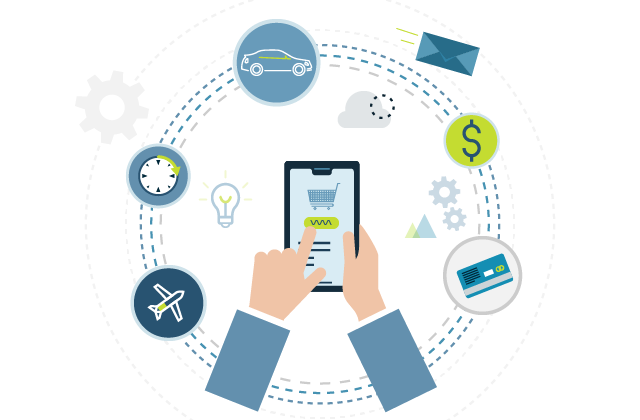
For years, the scope of personalization in the realm of marketing automation was restricted to the use of basic tokens (e.g. [F_NAME]) set within a templated message.
These days, AI-powered marketing automation can track and understand the personal preferences of individual consumers. That rich insight makes it possible for marketing professionals to go beyond elementary tokens, to offer deeply personalized content that can be created and distributed at scale.
For an example of how AI-powered marketing automation supercharges personalization, look no further than Amazon’s product recommendations. Amazon strategically uses AI to learn what each individual consumer’s preferences are. Then, Amazon uses that knowledge to curate a customized pool of recommended products to help increase gross and net-new sales.
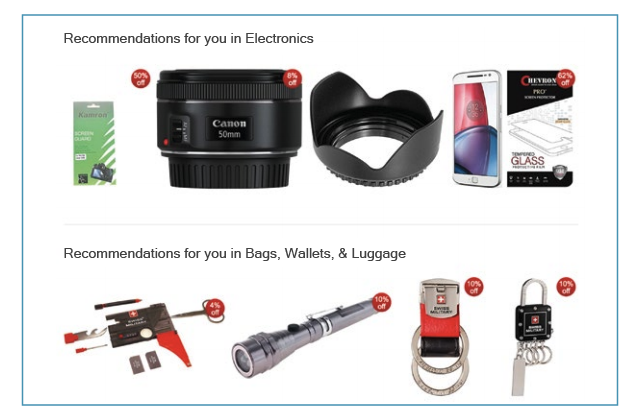
At Zeta, our retail and eCommerce clients use our AI-powered marketing automation platform to accomplish similar objectives, including sending personalized product recommendations to prospective customers across a multitude of channels.
For example, Snopes.com used Zeta to offer personalized content recommendations to its email subscribers, as well as its website users in real time. As a result, Snopes.com generated more than twice the number of pageviews generated from its previous marketing platform, and achieved a tremendous 49% open rate and 28% click-to-open rate (CTOR) for emails.
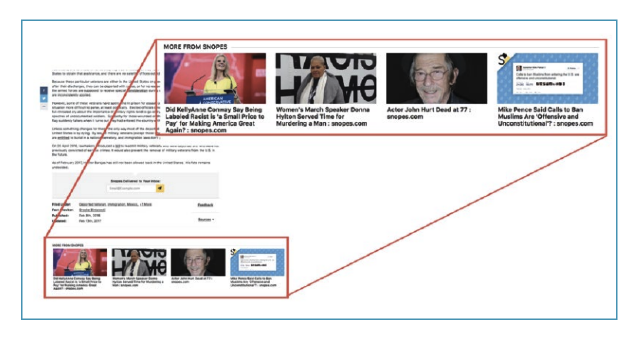
We mentioned this a lot already, but today’s AI-powered marketing automation platforms allow marketers to reach users via a range of channels. This gives marketers a tremendous operating advantage over legacy platforms given that modern consumers are constantly transitioning between media channels and devices. Interestingly, AI-powered marketing automation platforms can actually learn the preferred channels that individual consumers prefer to engage with. This knowledge helps marketers build campaigns in such a way that they can place greater emphasis on the channels known to yield the best results with any given individual.

At this point, you know how an AI-powered marketing automation platform helps marketers with the “what” (personalized content), “who” (per dynamic triggers) and “how” (via appropriate channels) of marketing communication. Now it’s time to see how it helps with the “when” of sending out a communication.
In the same way that consumers have different content interests and channels, they also prefer to receive (and engage with) marketing messages at different times. An AI-powered marketing automation platform helps marketers determine what those times are, so that messages and campaigns can be sent for maximum relevance. This increased relevance should lead to a deeper content connection, more consumer interest, better conversions, and—ultimately—more sales.
Whereas older marketing automation platforms only collect consumer information for basic fields such as name and email (which greatly limits audience segmentation), AI-powered marketing automation platforms can capture every consumer (even an anonymous website visitor) interaction with your brand—what buttons they click on, what pages they spend the most time on, etc.).
This wealth of information can be used to create a more unified view of each consumer based on behaviors, sentiments, and preferences in addition to basic demographics. With the Zeta Marketing Platform for example, marketers can view the entire activity history of a given consumer. This makes it easier to monitor engagement patterns and identify conversion leaks.
The AI-powered marketing automation platform allows marketers to reach the right user through the right channel at the right time like never before. Marketers can now deliver highly personalized communication to each user via their preferred channel. Moreover, marketers can track every activity of a given consumer and connect with them accordingly. If your brand is looking to find new ways to excite and delight prospective customers, embracing an AI-powered marketing automation platform is something to seriously consider.
Understand the Behavior of Every User
Traditional marketing automation services relied on pre-segmented email lists (segmented using basic demographics such as age, gender, location, etc.) and a series of triggers manually created by a marketer and fed into a given platform.
Conversely, the modern, AI-based marketing automation system…
- Provides access to more channels than email
- Helps marketers track the actions of individual users
- accommodates a wider array of action-based triggers
Using AI, newer marketing automation platforms can track every action a consumer takes over multiple channels. Using this information, AI-powered marketing automation platforms create knowledge graphs for each user to document and learn their preferences. This depth of individual insight makes it easier for brand marketers to create micro-segmented groups of users that can be marketed to using more nuanced campaigns than ever before.

For instance, Zeta’s AI technology pays close attention to individual consumer signals—behavioral, transactional, geographic, and more. Our AI can determine what items an individual shopper is putting in their cart just as easily as it can determine whether or not a consumer expresses interest in a specific landing page.
For example, Nykaa (a beauty and cosmetics eCommerce), tracks consumer micro-engagement signals across several different channels. They then use this data to create richer audience segments (e.g. consumers who’ve purchased more than $100 worth of products but never more than $200, etc. etc.) Nykaa will then target these micro-segments with highly custom, highly personal email campaigns that accelerate the growth of engagement and conversions.

Facilitate a Personalized User Experience
For years, the scope of personalization in the realm of marketing automation was restricted to the use of basic tokens (e.g. [F_NAME]) set within a templated message.
These days, AI-powered marketing automation can track and understand the personal preferences of individual consumers. That rich insight makes it possible for marketing professionals to go beyond elementary tokens, to offer deeply personalized content that can be created and distributed at scale.
For an example of how AI-powered marketing automation supercharges personalization, look no further than Amazon’s product recommendations. Amazon strategically uses AI to learn what each individual consumer’s preferences are. Then, Amazon uses that knowledge to curate a customized pool of recommended products to help increase gross and net-new sales.

At Zeta, our retail and eCommerce clients use our AI-powered marketing automation platform to accomplish similar objectives, including sending personalized product recommendations to prospective customers across a multitude of channels.
For example, Snopes.com used Zeta to offer personalized content recommendations to its email subscribers, as well as its website users in real time. As a result, Snopes.com generated more than twice the number of pageviews generated from its previous marketing platform, and achieved a tremendous 49% open rate and 28% click-to-open rate (CTOR) for emails.

Provide Omnichannel Reach
We mentioned this a lot already, but today’s AI-powered marketing automation platforms allow marketers to reach users via a range of channels. This gives marketers a tremendous operating advantage over legacy platforms given that modern consumers are constantly transitioning between media channels and devices. Interestingly, AI-powered marketing automation platforms can actually learn the preferred channels that individual consumers prefer to engage with. This knowledge helps marketers build campaigns in such a way that they can place greater emphasis on the channels known to yield the best results with any given individual.

Communicate at the Right Time With AI-Powered Marketing Automation
At this point, you know how an AI-powered marketing automation platform helps marketers with the “what” (personalized content), “who” (per dynamic triggers) and “how” (via appropriate channels) of marketing communication. Now it’s time to see how it helps with the “when” of sending out a communication.
In the same way that consumers have different content interests and channels, they also prefer to receive (and engage with) marketing messages at different times. An AI-powered marketing automation platform helps marketers determine what those times are, so that messages and campaigns can be sent for maximum relevance. This increased relevance should lead to a deeper content connection, more consumer interest, better conversions, and—ultimately—more sales.
Create a Unified View of Each User
Whereas older marketing automation platforms only collect consumer information for basic fields such as name and email (which greatly limits audience segmentation), AI-powered marketing automation platforms can capture every consumer (even an anonymous website visitor) interaction with your brand—what buttons they click on, what pages they spend the most time on, etc.).
This wealth of information can be used to create a more unified view of each consumer based on behaviors, sentiments, and preferences in addition to basic demographics. With the Zeta Marketing Platform for example, marketers can view the entire activity history of a given consumer. This makes it easier to monitor engagement patterns and identify conversion leaks.
Final Thoughts on AI-Powered Marketing Automation
The AI-powered marketing automation platform allows marketers to reach the right user through the right channel at the right time like never before. Marketers can now deliver highly personalized communication to each user via their preferred channel. Moreover, marketers can track every activity of a given consumer and connect with them accordingly. If your brand is looking to find new ways to excite and delight prospective customers, embracing an AI-powered marketing automation platform is something to seriously consider.


